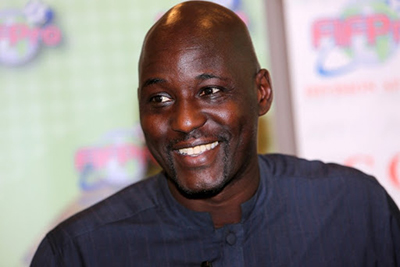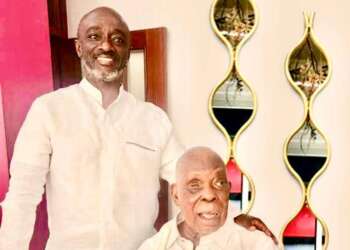Former Ghanaian international footballer who now serves as the Deputy General Secretary of the Confederation of African Football, Anthony Baffoe, has reckoned that the involvement of corporate bodies in football and club licensing as well as building the youth in football are stepping stones to giving the Ghanaian football industry a positive outlook.
He gave these tips in an interview with YFM’s Rev. Erskine on the Y Leaderboard Series.
Anthony suggested that the involvement of corporate bodies in Ghana’s sports goes hand in hand with how clubs are organized through club licensing.
He said: “First of all, we must see if the right people are in the right places. If you run a club, what is the criteria to be a Chief Executive Officer? We must set criteria. We have something we call club licensing. It is very important. They are strict rules in terms of infrastructure, financial accountability, among others. It helps a lot to put things in place. Back in the days, if I talk about football, we had Tema GPHA which was supported by the port. We had Obuasi Goldfields which was supported by the mines. We had Power FC which was supported by the Electricity Company. What I am trying to tell you is that it is very important that corporate bodies put themselves behind football. But as a club also what are you offering these corporate bodies in return? The organization is very important, financial accountability, and budgeting”.
Speaking on developing the youth in football, he noted that the football association must get “closer to the schools” and set up regional selections not only in football but also in athleticism and basketball. He observed that unlike Germany where he used to go to school from 8am to 1pm, the school system in Ghana engages the youths in long hours and that he says affects the youth’s involvement in sports.
Tony who was one of the first recognized black players to appear in the German Bundesliga in 1983 joined FC Köln at 18 years of age before moving across the border to join French side, FC Metz, nearly 10 years later.
He played for clubs on four different continents and spent a majority of his career in the German First and Second Bundesliga.
By: Alberta Dorcas N D Armah















